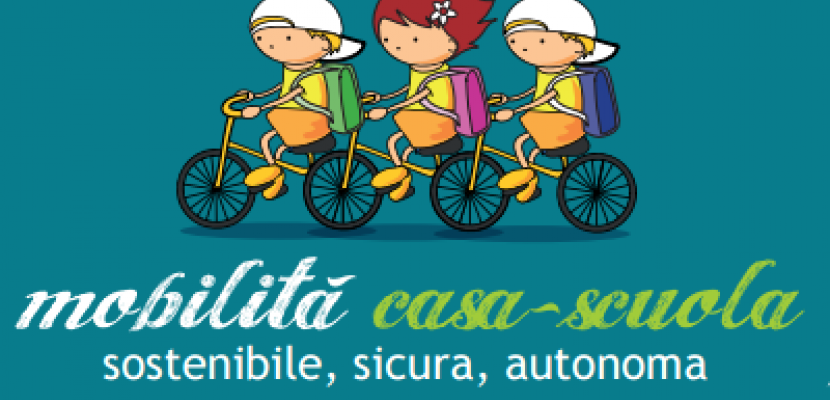Image

The “Manifesto” for a safe, sustainable and independent mobility in home-school routes
Published on 27 June 2019

Italy
Emilia-Romagna
This is the good practice's implementation level. It can be national, regional or local.
About this good practice
It is necessary to change transport behaviours for home to school trips towards more autonomous, sustainable and safe modes of transport.
School mobility, however, is a complex matter involving different areas (mobility, health and lifestyles, environmental and quality of life, management of public spaces, communication, education, road safety etc… ); in order to support behavioural change it is necessary to find a comprehensive and multidisciplinary approach to school mobility through the involvement of all the stakeholders. Being a multifold topic, the Municipality identified a long list of stakeholders directly involved with mobility, health and education, students and families: schools, Regional Environmental Protection Agency, Local Health Agency, Paediatricians' Federation, FIAB (local cycling association), Mobility Agency, Education Agency, Road safety Observatory. Starting with several bilateral meetings with all the local stakeholders involved, the Municipality of Reggio Emilia signed in 2009 the “Manifesto”, both an agreement and an Action Plan of the realisation of several projects and initiatives to foster the change towards safe, sustainable and autonomous modes of transport in home-to-school routes. Each signer committed in realising or contributing to the realisation of the projects contained in the Manifesto, and more in general to support the use of sustainable modes of transport. The involvement of key politicians and decision makers is highly necessary
School mobility, however, is a complex matter involving different areas (mobility, health and lifestyles, environmental and quality of life, management of public spaces, communication, education, road safety etc… ); in order to support behavioural change it is necessary to find a comprehensive and multidisciplinary approach to school mobility through the involvement of all the stakeholders. Being a multifold topic, the Municipality identified a long list of stakeholders directly involved with mobility, health and education, students and families: schools, Regional Environmental Protection Agency, Local Health Agency, Paediatricians' Federation, FIAB (local cycling association), Mobility Agency, Education Agency, Road safety Observatory. Starting with several bilateral meetings with all the local stakeholders involved, the Municipality of Reggio Emilia signed in 2009 the “Manifesto”, both an agreement and an Action Plan of the realisation of several projects and initiatives to foster the change towards safe, sustainable and autonomous modes of transport in home-to-school routes. Each signer committed in realising or contributing to the realisation of the projects contained in the Manifesto, and more in general to support the use of sustainable modes of transport. The involvement of key politicians and decision makers is highly necessary
Expert opinion
Fostering changes in mobility behaviour requires commitment from a range of stakeholders. The co-creation of a ‘Manifesto’ is an effective way to achieve multi-stakeholder consensus and the accompanying action plan has led to positive activities such as cycling workshops and sustainable travel use for school trips. Signing a manifesto, or declaration, can give a sense of belonging and initiative to the signatories, as well as being a useful PR tool which can help to grab the attention of the general public. It could be replicated in many other regions with relative ease, though as the practice notes, efforts are needed to keep people interested and committed. One way could involve the creation of an award scheme for the most successful school.
Works at
Interreg Europe Policy Learning Platform
Resources needed
The Manifesto itself does no need a specific budget beside staff hours since it is based on agreement, cooperation and building relations; the measures included in the Manifesto need a budget for the implementation. 8 months were necessary to involve stakeholders and develop together the Manifesto
Evidence of success
Initially, 9 projects addressed to primary and secondary schools were included. Currently, there are several new projects targeting pre-schools (3-6 year-old children). Thanks to the involvement of stakeholders, the number of cycling workshops and sustainable class trips have considerably increased both in terms of students and schools. In 2018/2019 school year, 31 out of 65 schools with approximately 3200 students have been involved in cycling workshop and school trips by train and bike.
Potential for learning or transfer
This measure has a high potential of transferability since it is a good way to start with school mobility management in a city, or to coordinate different ongoing measures under a wider umbrella. The consensus building and participative approach of the Manifesto is the strongest key activity of this good practice. The interest in the theme is very high at local, national and international level: the actions and projects contained in the Manifesto are still ongoing. The Manifesto has been presented at national and international conferences, and in 2012 it was awarded of the CIVITAS Award for Participation. At local level, the cooperation started with all the stakeholders involved in the Manifesto was very important for the realisation of the measures of the Manifesto and all the other initiatives that Reggio Emilia carried out in schools and beyond. Key positive factors:
- agreements and meeting
- projects and initiatives implemented
- cooperation with the stakeholders
- agreements and meeting
- projects and initiatives implemented
- cooperation with the stakeholders
Further information
Website
Good practice owner
You can contact the good practice owner below for more detailed information.
Organisation
Municipality of Reggio Emilia

Italy
Emilia-Romagna
Contact
Mobility Manager
